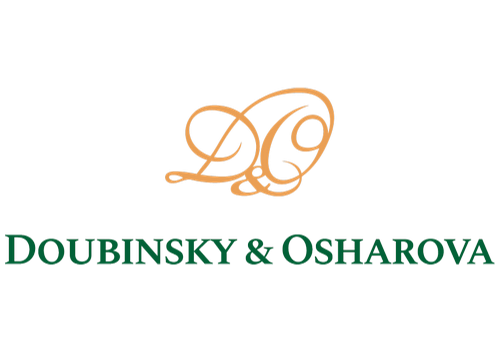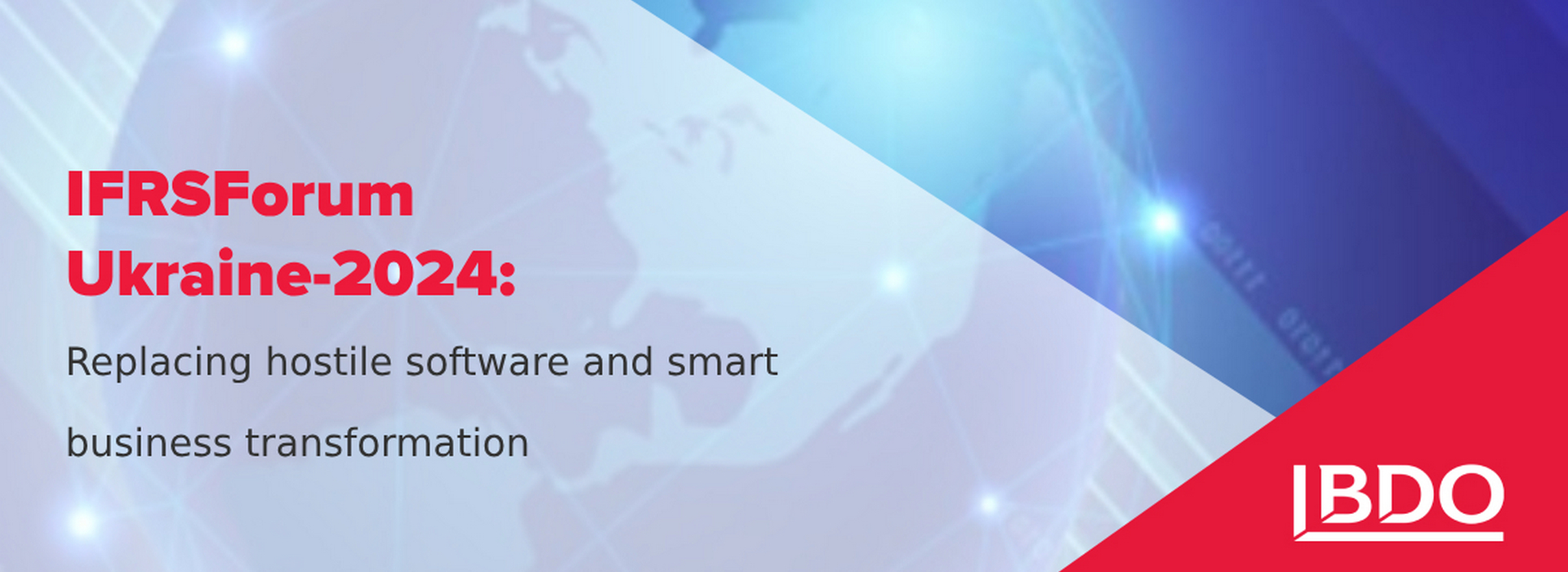Protection of intellectual property rights under martial law: key recommendations for business
Intellectual property rights are a key component of modern business. Under martial law, the focus is on protecting the life, health of employees, ensuring the functioning of the business or its relocation. At the same time, the loss of IP rights, disclosure of trade secrets, know-how, violation of obligations to counterparties will have negative and sometimes irreparable consequences for the continuation of successful business in peacetime.
Specialists of Dubinsky & Osharova have developed recommendations for business that will preserve the IP rights of the company during the martial law.
1. Protection of the rights of creators - employees and contractors
Relations with persons who perform work related to the creation of IP rights are traditionally drawn up in 3 forms:
- labor form (the legal status of the creator - employee);
- civil law form (the legal status of the creator - executor);
- entrepreneurial form (the legal status of the creator – sole proprietorship, executor).
Eachformhasitsowncharacteristics due tothestatus of the personcreatingthework–anemployee,anindividual,oranindividualentrepreneur.Therightsandobligationsofsuch a person,hisguarantees,andtaxationdiffer.
From the point of view of IP rights, the legal status of the employee and (or) the sole proprietorship is fundamental.
The creator – employee
Iftheworkonthecreationof IP rights objectsiscarriedoutby the employee, it is subjecttotheguaranteesprovidedbylaborlaws.
Modern technologies allow to organize remote work of employees and therefore the temporary departure of an employee (author or inventor) abroad of Ukraine will have no consequences in the context of IP relations. At the same time, it is worth remembering the peculiarities of the organization of relations regarding official objects.
The legislation establishes that the inventor is obliged to notify the employer in writing about the creation of an employee invention. The last one must within four months from the date of receipt of the notice from the inventor: 1) submit to the National Intellectual Property Office (NIPO) an application for state registration of the invention (utility model), 2) or transfer the right to such registration to another person, 3) or decide to preserve the employee’s invention (utility model) as confidential information. At the same time, the employer must conclude a written agreement with the inventor on the size and condition of payment to him (his successor) of remuneration in accordance with the economic value of the invention (utility model) and (or) other benefits that can be obtained by the employer.
The relevant messages and the contract must be made in writing which considering the remote work of the employee can also be made in electronic form using qualified electronic signatures.
Important! Property rights to computer programs and (or) databases created in connection with the performance of an employment contract belong to the person where the employee who created these computer programs and /or databases works, unless otherwise provided by the contract. The IP rights to a work created by order belong to the customer unless otherwise provided by contract or law.
If the employee (author or inventor) has traveled abroad for permanent residence, information should be updated in the application materials, in case of registration of rights in NIPO.
When organizing labor relations, it is necessary to consider the labor guarantees of employees-authors of inventions, utility models, industrial designs, and rationalization proposals, namely: the preemptive right to remain at work.
2. Attention to the state of procedures for registration of rights
Registration of IP rights is a complex and lengthy procedure that provides the need for constant monitoring by the applicant and his patent attorney, timely responses to notifications and requests of NIPO, payment of fees and state duties. Violation of the deadlines for committing actions, providing answers, or paying fees will result in the loss of rights to relevant applications.
It should be borne in mind that correspondence with NIPO can be provided by special systems of electronic interaction, access to which have the representatives in intellectual property (patent attorneys). The use of these systems considerably simplifies correspondence and saves time resources compared to the paper format.
3. Attention to maintaining the validity of rights
Intellectual property rights are fixed term. Special laws establish the peculiarities of maintaining their validity for each IP rights object. For example, trademark rights are extended every ten years, and the rights to inventions, utility models and industrial designs are extended annually.
Typically, NIPO sends a reminder of the need to maintain the validity of rights. However, considering martial law, it is advisable to independently check whether the deadline for payment of the relevant fees is approaching, or to apply to your patent attorney.
IMPORTANT! Inventions, utility models and industrial designs cannot be re-registered. Therefore, violation of the terms of payment of fees for maintaining force will result in the final loss of rights.
4. Updating information on the legal status of the right holder
Information about the owner of the rights of registered IP objects is entered in the State Registers of Protection Documents. These registers are open and posted on the official website of the State Enterprise "Ukrainian Intellectual Property Institute" (Ukrpatent), which performs the functions of NIPO.
Given that the effective implementation of rights often depends on the correctness of the information posted in the register, as well as the fact that correspondence with the right holder is carried out at the address indicated in the relevant register, it is advisable to independently check the relevance of this information. If the information has changed, you should contact the patent attorney with a request to update this information.
5. Compliance with the terms of agreements on IP rights
In the field of IP, numerous contracts are concluded: transfer and licensing of rights, agreements on the transfer of rights to receive protection document, coexistence agreements, options, and agreements on the creation of an object by order, commercial concession, and agreements on the implementation of research or development and technological works, etc.
The treaties derive obligations, the implementation of which is difficult or becomes impossible due to the armed aggression of the russian federation against Ukraine.
Agreements on the transfer of exclusive property rights may have obligations to pay remuneration for alienation of rights, state fees, submission of these documents for registration to NIPO, etc. It is worth remembering that the contract is valid from the date of its signing by the parties, but intellectual property rights are transferred to the acquirer (successor) from the date of state registration with NIPO. Therefore, before starting the use of the object, it is advisable to make sure that all procedures for registration of rights have been successfully completed, and the information is entered into the state register. It is also necessary to check whether the remuneration for alienation of rights has been paid and to obtain supporting documents.
An essential condition of the license agreement on trademarks is the quality control of goods (services) produced (provided) under the contract. Therefore, it is advisable to check whether there is an objective possibility of compliance with this condition, and the results of the inspection should be issued by an act.
Regarding the agreement on the transfer of the right to receive a protection document, it is necessary to verify whether the relevant documents have been submitted to NIPO, whether information has been entered into the application materials, and also, given that, as a rule, due to such changes, the obligation to pay the fee for the publication of information and the issuance of protection document passes to the successor, it is necessary to meet the deadlines for payment of these fees. In case of non-payment of fees, the right to receive protection document will be lost.
The legislation provides for the possibility of exemption from liability in case of violation of obligations, in case of proof that such violations occurred due to force majeure circumstances.
The Chamber of Commerce and Industry of Ukraine (hereinafter referred to as the UCCI) simplified the procedure for certifying force majeure circumstances (force majeure circumstances) and posted a general official letter from the UCCI regarding these circumstances.
Important! The fact that there are force majeure circumstances does not exempt persons from fulfilling obligations. In each case, it is necessary to prove that the obligation could not be fulfilled due to force majeure. The burden of proof will lie on the party that has violated or failed to fulfill its obligations, so it will be necessary to prove not only the fact of force majeure, but also its influence on the inability to fulfill obligations, for example, the lack of personnel in connection with traveling abroad or mobilization, the relocation of business from the territories where hostilities were going, the termination of the work of banking institutions, postal or electronic communications, termination of counterparties and supplies of components or fuel, damage to property, etc.
IMPORTANT! It is necessary to try to take all possible actions to prevent violations of intellectual property rights due to non-fulfillment of the contract, including it is necessary to coordinating with the right holder or counterparty regarding changes to the terms of the contracts.
6. Observance of intellectual property rights of third parties
The martial law regime does not provide for exceptions to the general obligation to respect IP rights. As in peacetime, there is a general rule according to which the use of the object of intellectual property rights is possible with the permission of the right holder, except in cases expressly established by law.
In view of this, in the event of a need for a business to use a particular object, first of all, it is necessary to verify whether it is not protected by copyright and / or related law, whether it is a trademark or commercial name, industrial design, invention or utility model.
It is worth remembering that the legislation on the protection of trademarks allows the owner of the rights to prohibit its use in relation to goods already put into civil circulation in case of change or deterioration of the condition of the goods.
The legislation on the protection of inventions and utility models does not recognize the violation of the rights arising from the patent, the use of a patented invention (utility model) in extraordinary circumstances (natural disaster, disaster, epidemic, etc.), but establishes the obligation, as it becomes almost possible, to immediately notify the patent holder about the fact of use and pay him appropriate compensation.
IMPORTANT! Patent attorneys are authorized by law to conduct patent research in the framework of which the fact of using an intellectual property object in an object of economic activity can be established.
7. Fixation of facts of violation or encroachment on rights
Protection of IP rights under martial law is difficult, and in regions with active hostilities is impossible. However, judicial and law enforcement agencies are gradually restoring full-fledged work, and therefore there is an objective possibility of protecting the right.
Appeal to judicial and law enforcement agencies should be preceded by preparatory actions to form an evidence base. Therefore, first of all, it is advisable to correctly record actions that are a potential violation of rights.
The powers to fix the relevant actions are granted to patent attorneys and lawyers. Patent attorneys can conduct research, prepare conclusions in which the fact of using the relevant IP object will be substantiated; lawyers can send relevant requests, receive documents, purchase goods, draw up inspection acts and prepare legal advice, within which they can fix actions that can be qualified by the judicial authorities as a violation of rights.
8. Compliance control of business relations with the russian federation
The russian federation is recognized as an aggressor country at the legislative level. The legislation establishes several restrictions on the interaction between Ukrainian and russian and belarusian businesses. There are bans on the import into the customs territory of Ukraine in the customs regime of import of goods from the russian federation, it is forbidden to perform, including forcibly, monetary, and other obligations, creditors (collectors) for which there are persons associated with the russian federation.
IMPORTANT! The relevant prohibitions oblige businesses to analyze counterparties for ties with the russian federation, and the contracts should include an anti-collaboration warning, which ensures that the counterparty does not apply to the relevant legislative restrictions.
9. Ability to force licensing
Legislation on the protection of rights to inventions and utility models establishes a rule according to which to ensure public health, state defense, environmental safety and other public interests, the Cabinet of Ministers of Ukraine may allow the use of a patented invention (utility model) to a person determined by him without the consent of the patent holder.
IMPORTANT! Right holders of inventions and utility models, which can be used to ensure public health and defense of the state, should develop their own algorithm of actions during the application of enforcement measures, including the preservation of trade secrets and know-how.
10. Compliance with the deadlines in the procedures for the protection of rights
On April 13, 2022, the Law of Ukraine "On Protection of the Interests of Persons in the Field of Intellectual Property during the Period of Martial Law" came into force. The purpose of the Law is to protect the intellectual property rights of persons who suffered because of armed aggression, as well as those who currently do not have the opportunity to exercise these rights.
This Law, first of all, is designed for persons who suffered as a result of armed aggression and does not exempt rights holders from the obligation to take actions to protect rights. The law does not specify the procedures for restoring rights in the postwar period, does not regulate the relationship of the conflict of priority rights, does not determine the legal consequences of entering patent documentation to the level of equipment on applications, the rights to which are lost during martial law, does not establish procedures for resolving conflicts of restored and existing rights, including consideration of objections to NIPO, lawsuits by judicial authorities, applications by the Antimonopoly Committee of Ukraine, customs and law enforcement authorities, does not solve issues related to the representation of the interests of trustees, whose beliefs, due to circumstances, ceased their professional activities in Ukraine.
IMPORTANT! It is advisable to take timely action to protect intellectual property rights.
For more information, please contact Doubinsky&Osharova:
+ 38 044 490 54 54





























